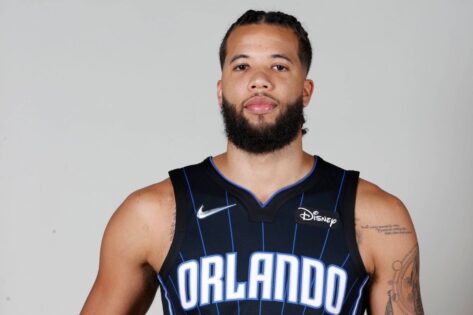“I come from a background of my family that has depression and anxiety.” That one sentence from Michael Carter-Williams carries the weight of years. Both on and off the court. Long before fans knew of the struggles he faced, the former NBA Rookie of the Year was quietly battling more than just tough opponents. And if you’ve ever felt stuck despite doing everything right, his story might just hit home.
It all seemed promising when Carter-Williams burst onto the scene with the Philadelphia 76ers in 2014. He was scoring in double digits, making headlines, and bagging the Rookie of the Year honor. But the Sixers, the “$3.2 billion team” riding high on their franchise value, traded him to Milwaukee in February 2015, a move that hit him like a ton of bricks. The trade wasn’t just a change of jersey—it felt like a rejection that sank deep, stirring doubts about his place in the league and in himself. That emotional blow wasn’t something he could just shake off.
That trade kicked off a rough stretch of hopping from team to team—Milwaukee, Chicago, Charlotte, Houston. Each move meant packing up his life, leaving friends behind, and starting over, all while trying to keep his game sharp and his head above water.
And things didn’t exactly get easier after that. In 2019, during his stint with the Houston Rockets, life took another difficult turn. His fiancée left him and took their 7-month-old daughter. He was heartbroken, lost, and at what he described as one of his lowest points. But that period also forced him to slow down, reflect, and find value in things that often go unnoticed.
“It was on my mind a lot. Like I’m supposed to be doing this, I’m supposed to be playing this way. I’m supposed to be averaging this many points. My trajectory is going down instead of up. But then like you said, like I started, I got so low in my life that the small wins really, I just appreciated them a lot more,” Williams said. That shift in perspective became his lifeline.
His time with the Orlando Magic was where this new mindset began to take root. He recalled one game when several players were out, and he stepped up to help beat Sacramento with a 24-point performance. “Those little games, those little things… That’s what success was for me,” he said. And when he signed a two-year deal with Orlando, it wasn’t just another contract—it felt like a blessing to him.
“I got so low in my life, that the small wins, I just appreciated more.” @mcarterwilliams
Former NBA star Michael Carter-Williams opens up to @Realrclark25 about being at rock bottom trying to find the joy in little moments and how he went from feeling almost fix feet deep to… pic.twitter.com/qFr07wsKMs
— Pivot Podcast (@thepivot) April 12, 2025
But Michael Carter-Williams didn’t just stop at healing himself. According to The Boston Globe, he co-developed an app called NDUR, designed to support student-athletes with mental health tools for anxiety, depression, and anger.
Sacramento Kings star being vocal about players’ mental health brought a change
When DeMar DeRozan first spoke publicly about his mental health battles, it wasn’t just a personal moment—it was a turning point for the NBA. He became one of the first players to lay bare the truth that even star athletes, those we often see as unshakable, can quietly face depression and anxiety.
And according to the Sacramento short forward, he’s far from alone in this fight. DeRozan sees it all the time—top-tier players grappling with issues behind the scenes, often with no outlet to talk about it. His courage, however, didn’t go unnoticed.
In 2019, the NBA took a major step forward by requiring every team to employ at least one full-time, licensed mental health professional. Teams also had to create a clear plan of action to respond to mental health emergencies. The league didn’t stop there—when the COVID-19 pandemic hit, those programs expanded even more.
“There is still more work to be done, but when I first came to the league, there was no mention of mind health, anxiety, depression… Fast forward to now, the NBA has therapists readily available at each team, and it’s a more acceptable environment to ask for help,” he said in an interview. Clearly, stars like DeRozan and Michael Carter-Williams are not ready to let other athletes suffer the same troubles they did.
The post Struggling with Mental Health, Ex-NBA Star Michael Carter-Williams Admits $3.2 Billion Team’s Impact appeared first on EssentiallySports.
